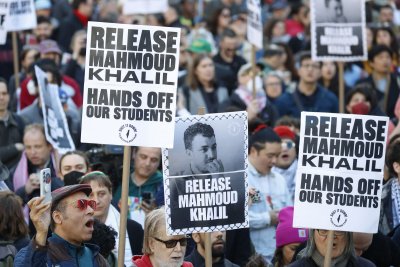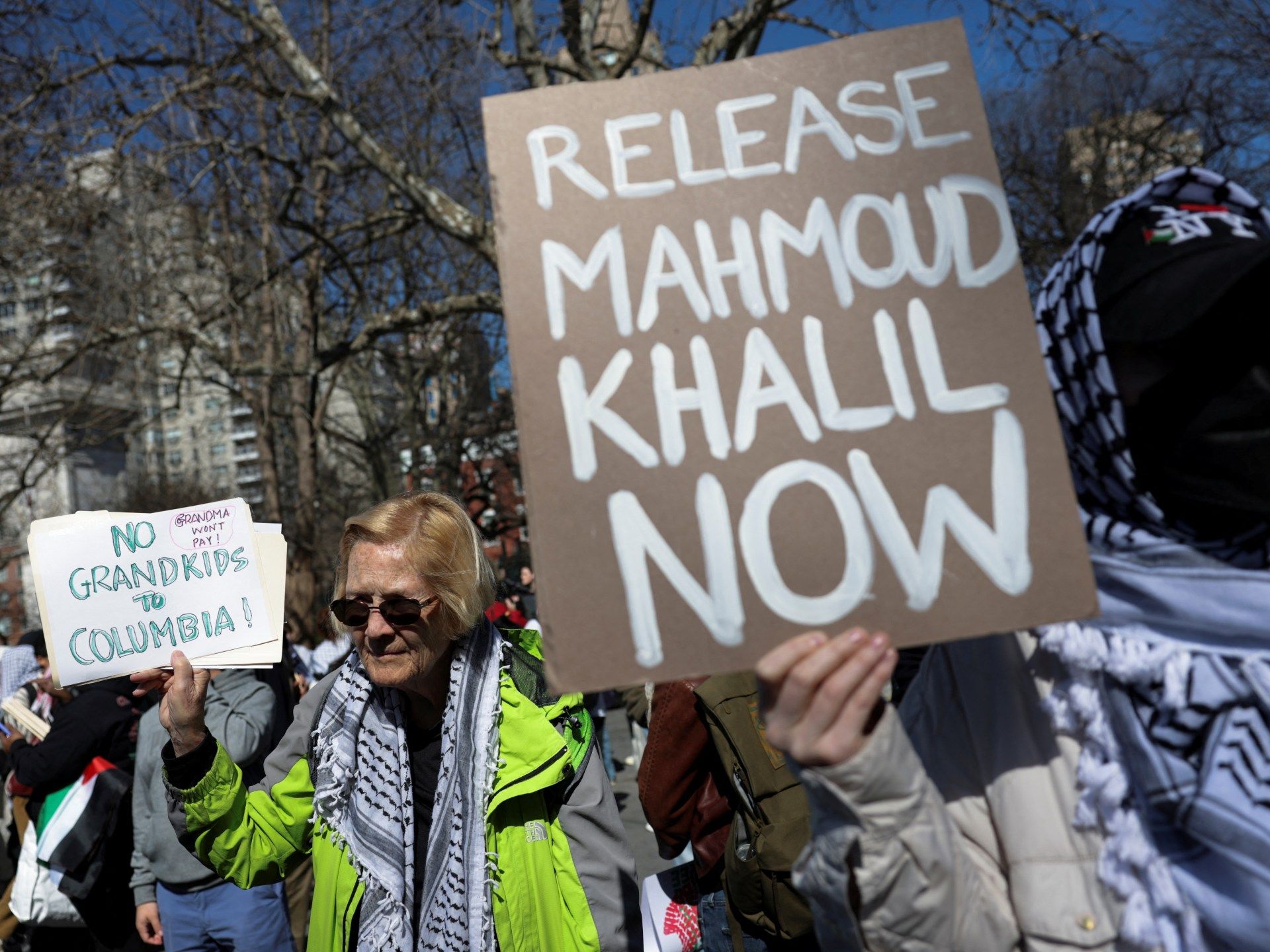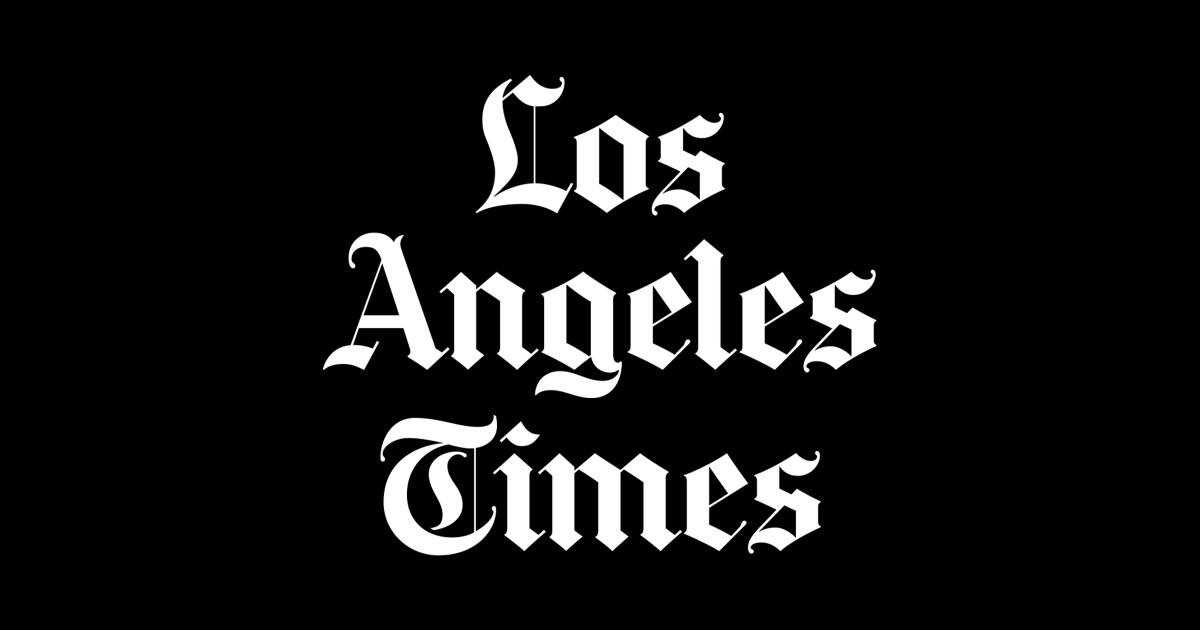Judge rules Mahmoud Khalil can remain in custody amid green card dispute | Donald Trump News
The Trump administration has argued that Khalil, a Columbia University student, did not disclose past affiliations.
A United States federal judge has allowed the administration of President Donald Trump to keep student protester Mahmoud Khalil in custody based on allegations of immigration fraud.
On Friday, Judge Michael Farbiarz of Newark, New Jersey, ruled that Khalil’s legal team had not adequately shown why his detention on the charge would be unlawful.
It was a major setback for Khalil, who had been a negotiator for the student protesters at Columbia University demonstrating against Israel’s war on Gaza. He was the first high-profile protester to be arrested under Trump’s campaign to expel foreign students who participated in pro-Palestinian advocacy.
Just this week, Farbiarz appeared poised to order Khalil’s release, on the basis that his detention under the Immigration and Nationality Act of 1952 was unconstitutional.
That law stipulates that the secretary of state – in this case, Marco Rubio – has the power to remove foreign nationals who have “potentially serious adverse foreign policy consequences for the United States”. But Farbiarz ruled that Rubio’s use of the law violated Khalil’s freedom of speech.
Still, the Trump administration filed additional court papers saying it had another reason for wanting to deport Khalil.
It alleged that Khalil, a permanent US resident, had omitted information from his green-card application that would have otherwise disqualified him from gaining residency.
The Trump administration has long accused Khalil of supporting terrorism through his protest-related activities, something the former graduate student has vehemently denied.
In the case of his green-card application, it argues that Khalil failed to disclose his work with the United Nations Relief and Works Agency for Palestine Refugees in the Near East (UNRWA), a humanitarian organisation. Politicians in Israel and the US have accused UNRWA of ties to the armed group Hamas, an allegation reportedly made without evidence.
Khalil, however, has denied he was ever an “officer” in UNRWA, as alleged. Instead, his legal team points out that he completed a United Nations internship through Columbia University.
The Trump administration also argues that Khalil did not accurately identify the length of his employment with the Syria Office of the British Embassy in Beirut. Khalil and his legal team, meanwhile, say he accurately identified his departure date from the job as December 2022.
Judge Farbiarz had set Friday morning as a deadline for the Trump administration to appeal Khalil’s release on bail. But that deadline was extended to give the government more time to challenge Khalil’s release.
Ultimately, Farbiarz allowed the Trump administration to continue its detention of Khalil. He advised Khalil’s lawyers to seek release on bail from the immigration court where his deportation trial is being held in Louisiana.
Farbiarz had been weighing a separate habeas corpus petition from the Khalil team that called into question the constitutionality of his continued detention.
Marc Van Der Hout, a lawyer for Khalil, told the Reuters news agency that immigration fraud charges are exceedingly rare, and the Trump administration’s use of such charges was simply a political manoeuvre to keep Khalil in lock-up.
“Detaining someone on a charge like this is highly unusual and frankly outrageous,” said Van Der Hout. “There continues to be no constitutional basis for his detention.”
Another lawyer representing Khalil, Amy Greer, described the new allegations against his green-card application as part of the government’s “cruel, transparent delay tactics”. She noted that Khalil, a new father whose child was born in April, would miss his first Father’s Day, which falls this Sunday in the US.
“Instead of celebrating together, he is languishing in ICE [Immigration and Customs Enforcement] detention as punishment for his advocacy on behalf of his fellow Palestinians,” Greer said in a statement.
“It is unjust, it is shocking, and it is disgraceful.”







